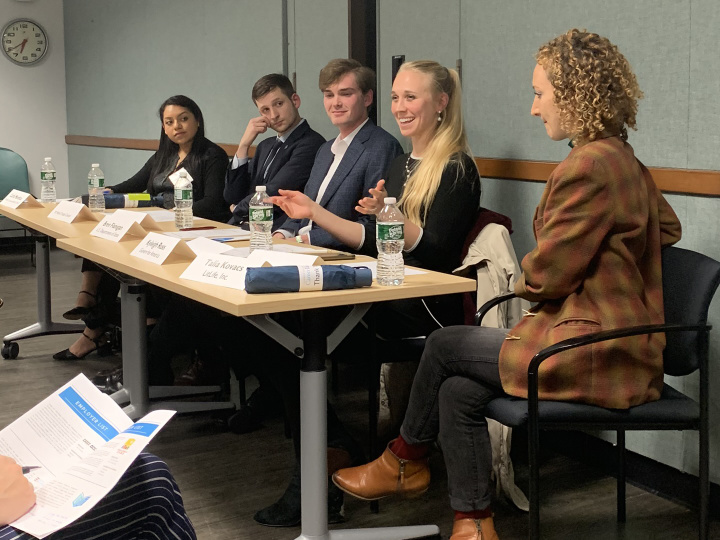
On February 6th, students and employers gathered for the Policy and Social Impact Industry Showcase hosted by CCE and Women in Law and Politics. The agency representatives ranged from careers in non-profit, education, government and international affairs. Panelists shared valuable insight into different career paths that play a role in policy-making.
Assessing Your skill set
What do composure, adaptability, and resourcefulness have in common? These are some of the necessary skills emphasized by panelists for individuals seeking careers in policy and social impact. Remaining calm, adjusting quickly to changing situations, and being able to identify and utilize your available resources, is essential to your success in the policy world.
Ask yourself, what are the skills you want to use every day?
At Govern for America, applicants are asked to rank their top 3-5 interest areas and encouraged to remain open and excited to the selection process. Kayleigh emphasized the importance of identifying skills over impact areas. While you can be passionate about a variety of topics, she recommended focusing on how your skill set can be adapted in those particular areas.
Value of Internships
Bren from the U.S. Department of State emphasized the significance that previous internships had on his long term career goals in international affairs.
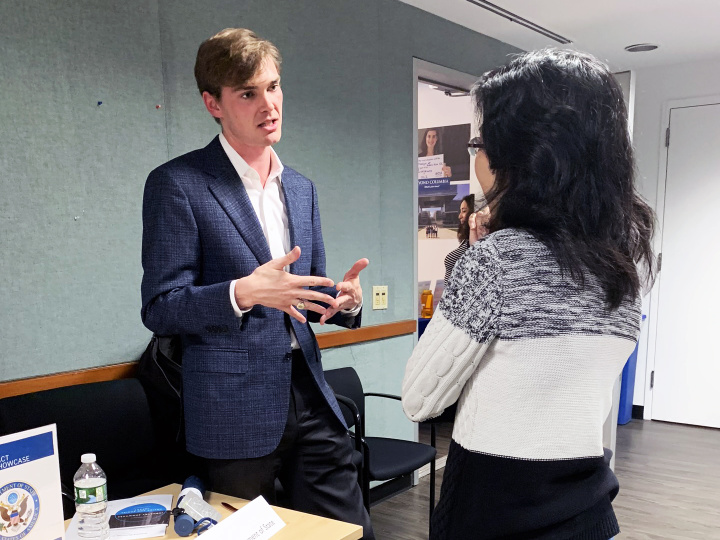
He wanted to represent the U.S. overseas but needed more experience for the Foreign Service. He served in the PeaceCorps to gain skills and experience, which helped him verify that this was the career he wanted to pursue.
His advice: Check out the qualities sought in Foreign Service Officer candidates and explore the various career tracks. Apply for internships based on the areas you want to develop.
Rob from The New York Hotel Trades Council encouraged attendees to complete internships and reflect on their experience to understand which organizations align with their values. His organization values heart and determination in candidates.
Career paths aren’t linear
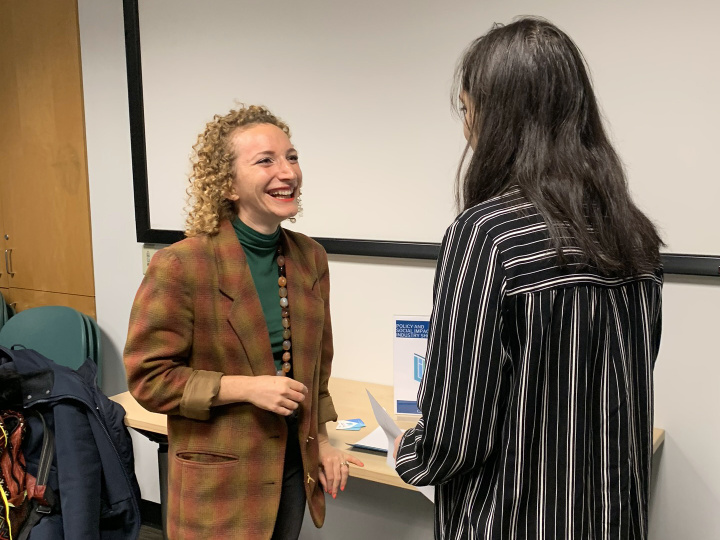
Panelists agreed that mobility is possible from private to public sector work. In order to make this transition, it’s important to explain how your career choices align with the current opportunity you are seeking.
Talia from LitLife shared her personal experience transitioning from being a teacher to launching an agency that focuses on education policy. While policy-making has a larger impact, it can take several years to implement. Teaching provides the opportunity to create small and immediate impact on a daily basis.
Challenges impacting policy issues
Panelists highlighted examples of the process involved in shaping public policy across their organizations. Sometimes the best practice is not politically or practically viable.
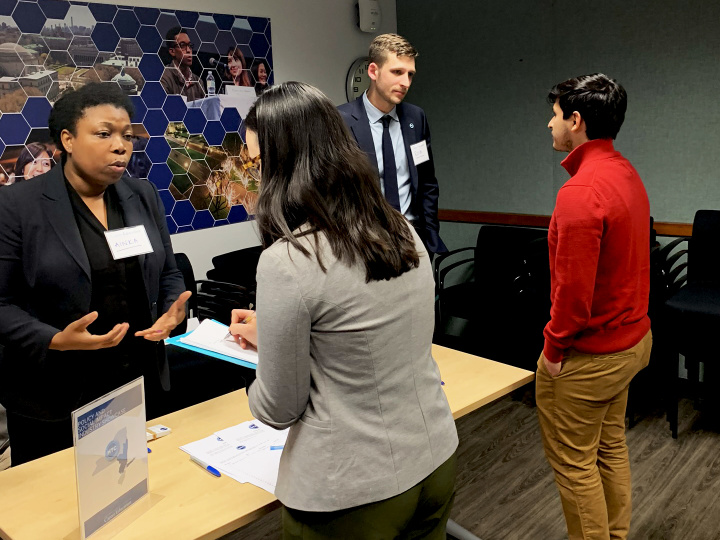
Rob from The New York Hotel Trades Council discussed the intricacies of working in a large union with political power where the policy goals are set by the membership.
Bren explained the role of Foreign Service Officers is to report and enforce US Foreign Policy, but that the substance of that policy is dictated by the Executive Branch. Those working as civil servants in D.C. may work on policy issues, while Foreign Services Officers abroad work to ensure fair government elections.
Building connections
After the panel, students connected with panelists as well as other organizations in attendance.
The organizations represented included:
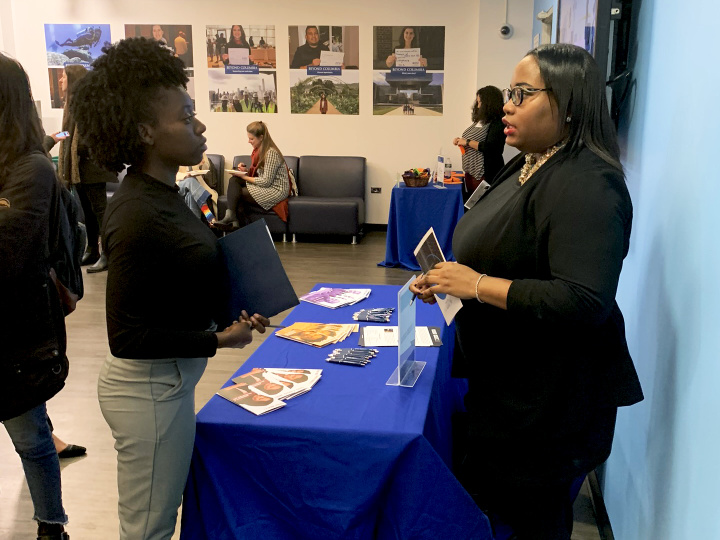
- American Camp Association, New York and New Jersey
- Avodah
- Center for Alternative Sentencing and Employment Services
- Govern For America
- Harlem Children’s Zone
- LitLife
- Hotel Trades Council
- U.S. Department of State
What’s Next?
To learn more about careers in policy and social impact, check out our Industry Pages.
Make a career counseling appointment to discuss strategies in navigating your job or internship search!